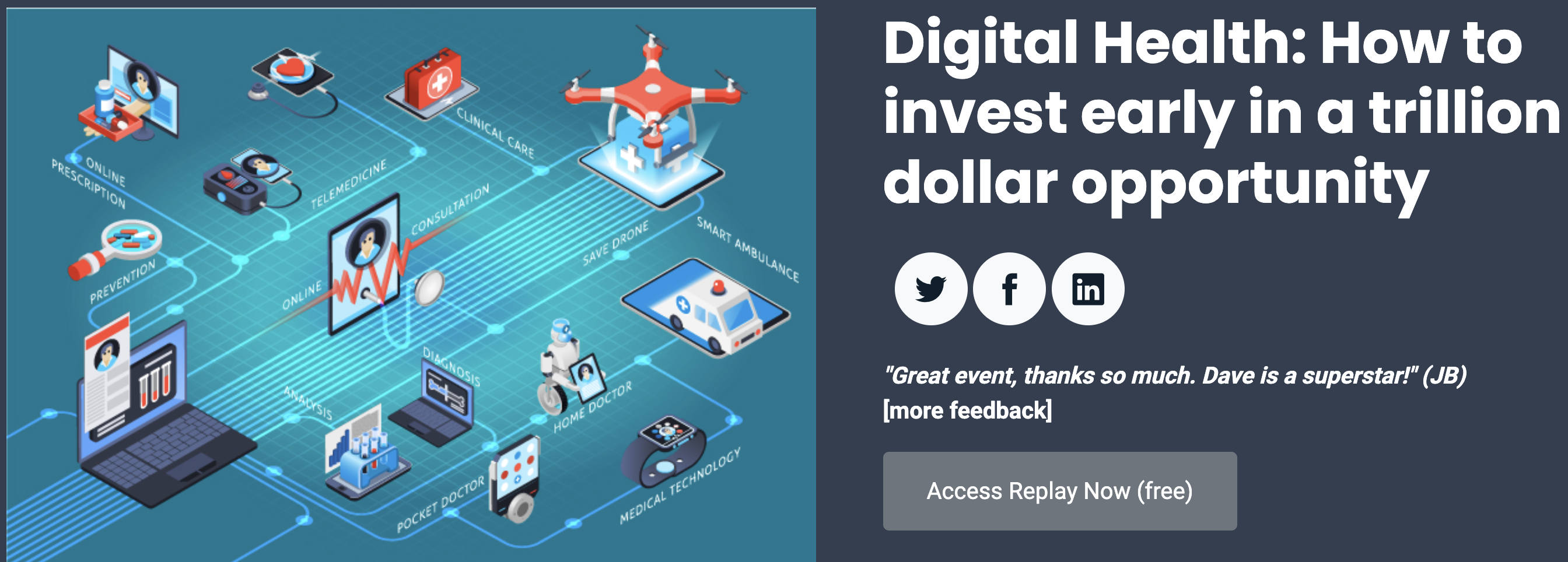|

Dave Vreeland B. G., Opalesque Geneva for New Managers: The value of private equity and venture capital deals in healthcare technology climbed about 50% year over year to $15bn in 2024, according to S&P Global Market Intelligence data. In 2025, first-quarter results showed continued momentum. Total deal value in healthcare technology reached almost $3bn, up nearly 22% from the same period in 2024.
Venture fund manager Dave Vreeland, head of Nashville, TN-based Caduceus Capital Partners, is part of this trend, with a thesis that the U.S. healthcare system is on the brink of collapse but also of rebirth, thanks to technology and innovation.
The underlying thesis behind his two early-stage digital health funds is macroeconomic, macro demographic, and geopolitical, he explained during a recent Opalesque video interview.
The highest levels of debt in history
On the macroeconomic level, the U.S. currently has the highest levels of debt in its history, at $37tln and climbing - or about 120% of GDP.
"Professor Galloway recently described the U.S. in terms of if we were a household, we would have an income of $50,000," he said. "We would have outgoing expenses of $70,000 and debt of $370,000. And that debt would be left to the young people working on the first floor going to work every day. And there are a bunch of folks on the second floor who are retired and asking for their check for health care."
$5tln (about 20% of GDP) is spent on healthcare each year and is expected to reach $7tln by 2030. Out of the typical yearly $7tln federal government budget, $2.5tln is health care, $1.5tln on social security, about $1tln on defence, and about $1tln on servicing the debt.
He believes this is unsustainable. Besides, the health care system is highly unpopular and expensive. "Our fundamental thesis is that down the line, probably in the next decade, the system will tumble under its own weight. And we'll end up with an entirely different kind of health care system."
U.S. demographics not a pretty picture
The U.S. spends twice the money as a percentage of GDP on healthcare than any other democracy. Yet, U.S. life expectancy, general mortality and infant mortality are all substantially worse than other western democracies and in many cases third world countries.
Furthermore, there are marked clinician shortages. With only about one million physicians in the country and a growing general population, the shortage of caregivers is increasingly severe. The U.S. will need at least 150,000 more physicians by 2034, yet fewer people are choosing to go into medicine. The average age of a U.S. physician is 53 while the average age of other U.S. worker is 41.8.
"There've been about a million physicians in the U.S. for the past 20 years. That number has not gone up as the population of the U.S. has gone up. Not only are there fewer people going into medicine, but there are even fewer that go into the specialty of psychiatry in a world where we need more mental health, emotional health and behavioural health support."
Meanwhile, the U.S. demographics is not a pretty picture. By 2030, all 70 million baby boomers alive will be 65 or older. And 80% of healthcare costs are incurred over the age of 65.
"Our demographic picture in the United States is worse than the macroeconomic picture.
This is a demographic onslaught coming towards us here in the next decade. 11,200 baby boomers turn 65 every day between the years of 2024 and 2027. The ratio of workers to retirees in 1945 was 45 workers per retiree. Today, it's 2.9 workers per retiree."
Less than half of Americans view their healthcare experiences as positive. As the Millennial generation (people born from 1981 to 1996) becomes the driving force for voting and expectations of the healthcare system, dramatic changes will be forced upon the industry.
Dave Vreeland is senior managing partner of early-stage digital health investment firm Caduceus Capital Partners, which he founded in 2020 with Scott Colosar, whom he met at Ernst & Young. He has more than three decades of leadership experience in health care administration, tech consulting, investment and entrepreneurship. He oversees the Caduceus investment portfolio in early-stage digital health companies with a goal to improve the way health care is accessed, delivered and paid for across the U.S. Caduceus started Early-Stage Digital Health Fund 1 in 2020, now a $30m fund with 11 investments. And the firm is currently fundraising for Fund 2, which has already hit its initial $50m target and is now looking to reach $75m by the end of the year.
Part 2 will be published in tomorrow's AMB.
You can watch the whole interview here:
www.opalesque.com/webinar/#pastwebinar

|